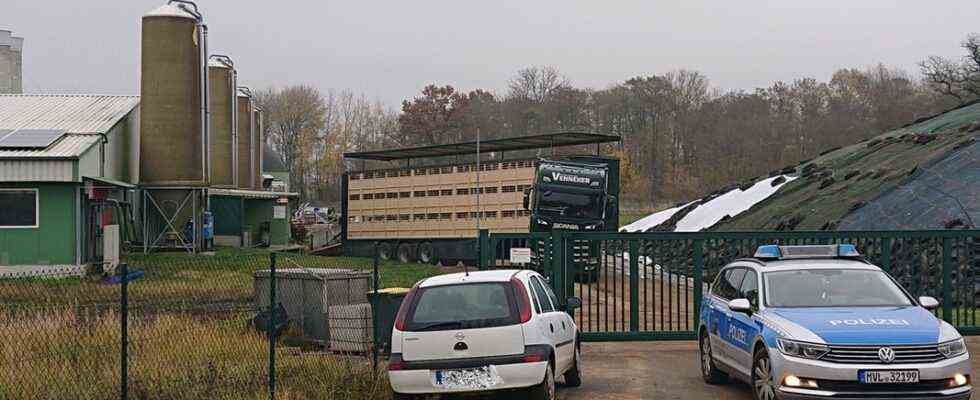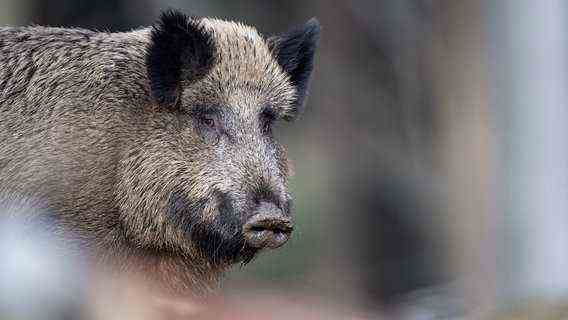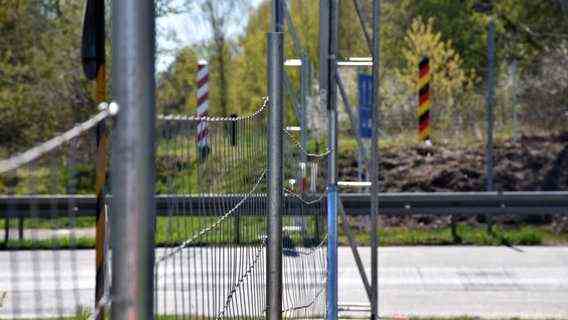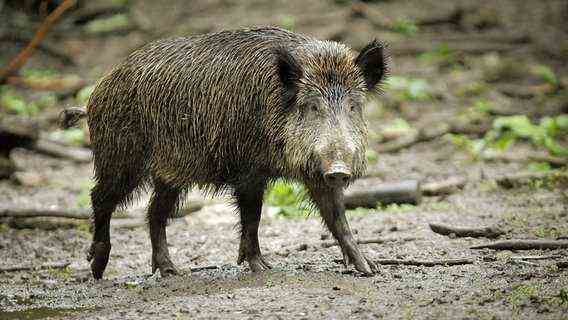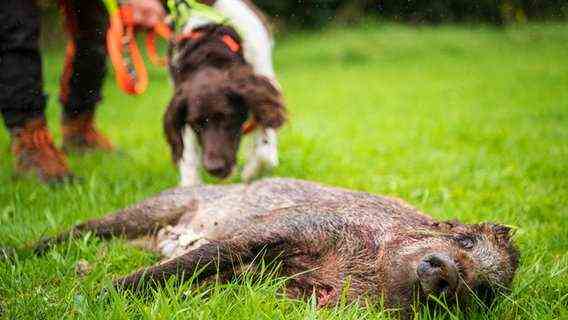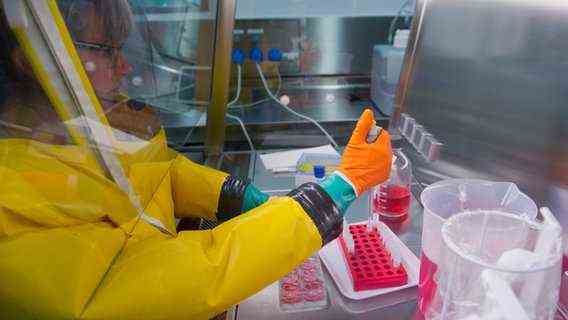Status: 11/17/2021 6:26 a.m.
After the African swine fever (ASF) broke out for the first time in Mecklenburg-Western Pomerania, the killing of more than 4,000 pigs begins. A restricted area with a three-kilometer radius was set up around the affected family business in the Rostock district.
Mecklenburg-Western Pomerania’s Agriculture Minister Till Backhaus (SPD) announced on Tuesday morning about the background and measures to the first cases of African swine fever in the northeast. Accordingly, the epidemic occurred in a family business in Lalendorf in the Rostock district. The Friedrich Loeffler Institute confirmed the suspicion on Monday evening. 4,038 animals are kept in the pure fattening operation. They will all be killed from today. The action will be carried out by a specialist company under the highest epidemic hygiene precautions. The removal of the animals has already started and should be completed by the weekend. Whether or not the fattening pigs show symptoms of the highly contagious infectious disease does not matter, according to Backhaus.
additional Information
“Then it became clear that something was happening here”
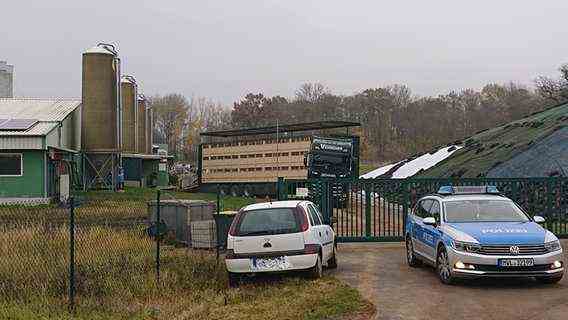
A restricted zone was set up around the affected company.
According to Backhaus, there were first indications of an infection in one of the company’s animal groups on November 12th. Animals from the herd died in the following days: four on Friday, eight on Saturday, five on Sunday and on Monday 20. “It became clear that something was happening here,” said Backhaus. The vet acted consistently and the animals were brought to Rostock for dissection. The affected company was still closed on Monday afternoon. Animals are no longer allowed to be taken away. Vehicle and passenger traffic was also banned, according to Backhaus.
Restricted area and surveillance zone established
A restricted zone with a three-kilometer radius had been set up around the affected company between Güstrow and Teterow. There is a “surveillance zone” ten kilometers around the farm: pigs may only be brought out after thorough examination. It is imperative to avoid further procrastination. According to Backhaus, there are a total of 20 farms within a ten-kilometer radius. There are eight farms in the three-kilometer zone – five are micro-farms with fewer than 100 pigs. Backhaus did not name the total number of domestic pigs in the restricted and observation area.
The company concerned also has locations in other counties
The affected family business has a total of four locations: These include two further fattening farms in the Mecklenburg Lake District and a sow facility with 1,000 dams and piglets in the Vorpommern-Rügen district. The stocks in the other three companies are now strictly controlled, stressed Backhaus. So far there has been no evidence of African swine fever.
additional Information
Specialists are looking for the cause of the introduction
The question of how the virus was entered is still open. Mecklenburg-Western Pomerania had armed itself against the epidemic with measures such as protective fences on the border with Poland and the training of epidemic dogs that can sniff out the virus in dead wild boars – in vain. Epidemiologists from the FLI have now made their way to the affected company to get to the bottom of the cause. It is conceivable, for example, that people, material, feed or employees who have been to the hunt and have come into contact with infected wild boars in the process. “All of this is – if you will – examined criminologically by epidemiologists,” said Backhaus.
No infected wild boars discovered yet
“We’re still in the dust,” said the minister. There are still no hints for solving this riddle. So far, no dead, infected wild boar has been discovered in the immediate vicinity of the farm. It is known from Brandenburg and Saxony that the animal disease first broke out among wild boars there. Only then was it carried into domestic pig herds. The managing director of the Hybrid Pig Breeding Association North / East, Robert Langas, said that after the cases in Brandenburg and Saxony, an outbreak of the animal disease in wild boars had to be expected. But he is surprised that the epidemic first appeared in farm animals in the middle of the state. According to Backhaus, more than 800 wild boars have been examined in the district in the past two years, and not a single case has been discovered.
Backhaus “bitter” about Federal Agriculture Minister Klöckner
The minister appealed to the slaughterhouses with supply relationships from Mecklenburg-Western Pomerania – Backhaus named companies in Kellinghusen (Schleswig-Holstein), Perleberg (Brandenburg) and Weißenfels (Saxony-Anhalt) – to continue accepting and slaughtering animals from Mecklenburg-Western Pomerania. Many countries, including China, do not import pork or pork from countries or regions with ASF.
Backhaus also directed clear words to federal politics and the Federal Ministry of Agriculture for which Minister Julia Klöckner (CDU) was responsible. This failed to promote the development of a vaccine against ASF. He was “bitter” about that, according to Backhaus. There was also no support from the federal government in the country’s measures to prevent the outbreak. “If we had had this situation in North Rhine-Westphalia or Lower Saxony, a lot more would probably have happened.” According to the Ministry of Agriculture, 717,000 pigs are kept in Mecklenburg-Western Pomerania, and nationwide there are around 25 million.
additional Information


